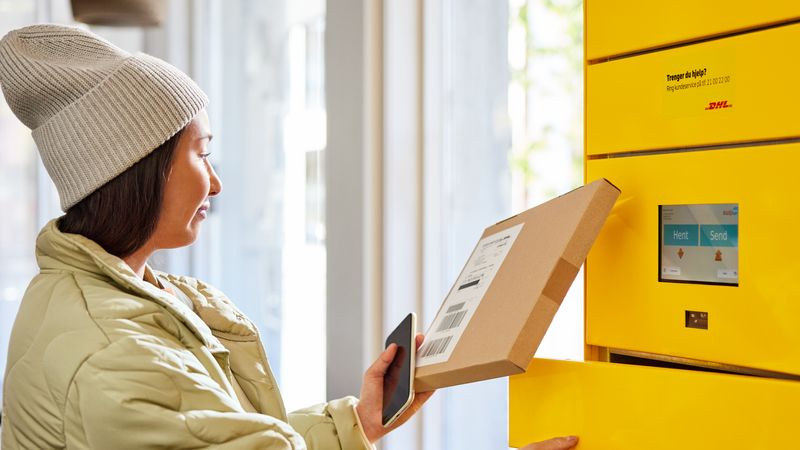Grow your business with the Discover newsletter
Logistics advice & insights straight to your inbox
Subscribe now
Japan is well-known for producing high-quality and unique products, making it a popular destination for importers around the world. From traditional culture and heritage artefacts to cutting-edge technological innovations, the country presents international exporters with ample opportunities to connect consumers at home with the latest direct imports and items made in Japan.
Indonesia is one such country that imports a wide range of products from Japan, including cars and vehicles, electronic devices, food, and even prized koi fish. According to the Observatory of Economic Complexity (OEC), Japan exported ¥177 billion in goods to Indonesia in 2022, reflecting a 20.9% growth from the same period in 2021. Entrepreneurs and importers in Indonesia who wish to bring in products from Japan will no doubt have their work cut out for them as the local demand for Japanese goods continues to increase.
However, importing goods from Japan into Indonesia can be a complex process. Read on for our comprehensive guide on importing from Japan to Indonesia, and how to have a smooth import process from Japan.
When importing goods from Japan into Indonesia, businesses must pay various taxes and duties imposed by the Indonesian authorities. The main taxes involved in this process are CIF (Cost, Insurance, and Freight) duty, Value-Added Tax (VAT), Excise, and Sales Tax.
CIF applies to all imports with a total product value of US$50 and above, which covers the vast majority of large-scale freight shipments. It is calculated based on the complete shipping value as well as the total cost of your goods, freight, and insurance. Overall, CIF can range between 0% to 40% depending on the type of goods or products being shipped, with the average duty rate being 10.89%.
Like CIF, Sales Tax are calculated based on the type or quantity of imported goods. An additional Sales Tax on Luxury Goods (STLG) of 10%-75% of the sum of CIF value and duty may also be levied on selected products such as luxury cars, luxury apparel, or alcoholic beverages.
On top of CIF and Sales Tax, all goods imported into Indonesia are also subject to a standard 10% VAT, or a reduced rate of 0%-5% dependent on the CIF value and duty. Selected goods containing ethyl alcohol and tobacco are also subject to Excise rates meant to control their import and consumption.
Thankfully, Indonesia and Japan have entered into several Free Trade Agreements (FTA) that reduce or eliminate taxes and duties on certain products, making it easier for Indonesian businesses to conduct their import services.
The Japan-Indonesia Economic Partnership Agreement (JIEPA) was ratified in 2007 and covers a wide range of common Japanese imports into Indonesia including agricultural products, fisheries, textiles, automobiles, and automobile parts. Under the JIEPA, Indonesian importers can enjoy the elimination of selected customs duties or lowered duties rates for selected products.
Indonesia and Japan are both also parties to the ASEAN-Japan Comprehensive Economic Partnership (AJCEP), which aims to promote economic cooperation and reduce barriers of trade between Japan and ASEAN member countries. Under the AJCEP, importers are also privy to the elimination or reduction of selected tariffs, amongst other benefits.
However, it's important to note that some products are still subject to high taxes and duties, even with the FTAs in place. For example, direct car imports from Japan can still be subject to significant taxes and duties, especially if the car is considered a luxury item. Therefore, it's important for Indonesian importers to research the specific taxes and duties for the product they wish to import before making any purchase decisions.
Indonesia has strict shipping and customs regulations on what products can be imported into the country.
Prohibited items that cannot be imported into Indonesia include:
Certain restricted goods and commodities may require additional licences or permits during the import process, such as:
DHL has also released a list of commodities not acceptable for transport by our carrier under any circumstances. Before selecting the types of things you want to import from Japan, you should do your due diligence to ensure they meet the Indonesian government’s regulations on prohibited and restricted items.
Importers in Indonesia will also need to prepare several shipping documents before importing from Japan, including Tax ID, Single Business Number (NIB), bills of lading (BL), purchase orders, packing lists, and others. Additionally, products such as consumables may require specific licences – all of which must be fully prepared beforehand to avoid any customs delays. Find out more about importing into Indonesia and get the latest business advisories in our guide to importing to Indonesia.

Importing goods from Japan into Indonesia can take time and effort even for experienced importers. That’s why DHL Express Indonesia offers reliable and efficient shipping services for Indonesian importers, along with a variety of added-value services and shipment protection options. These services include door-to-door delivery, customs clearance assistance, and shipment tracking options for transparency throughout the shipping process. Our extended liability and shipment insurance coverage for your shipments also helps to give you peace of mind, while helping you reduce overhead costs and navigate the complexities of the international import and export process.
Whether you're importing cars, electronic products, or koi fish from Japan, DHL Express can provide a fast and secure shipping experience from start to finish. Open a DHL Express business account today and find out how we can help your import business flourish.